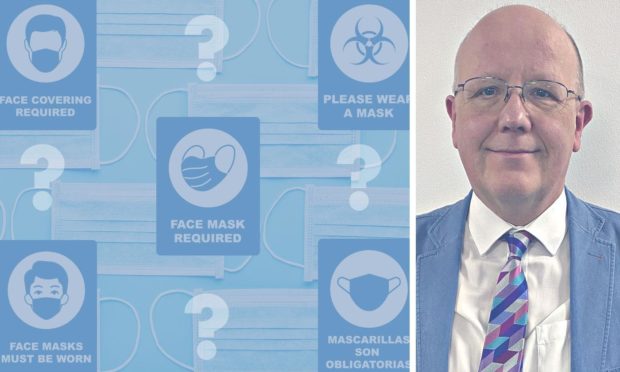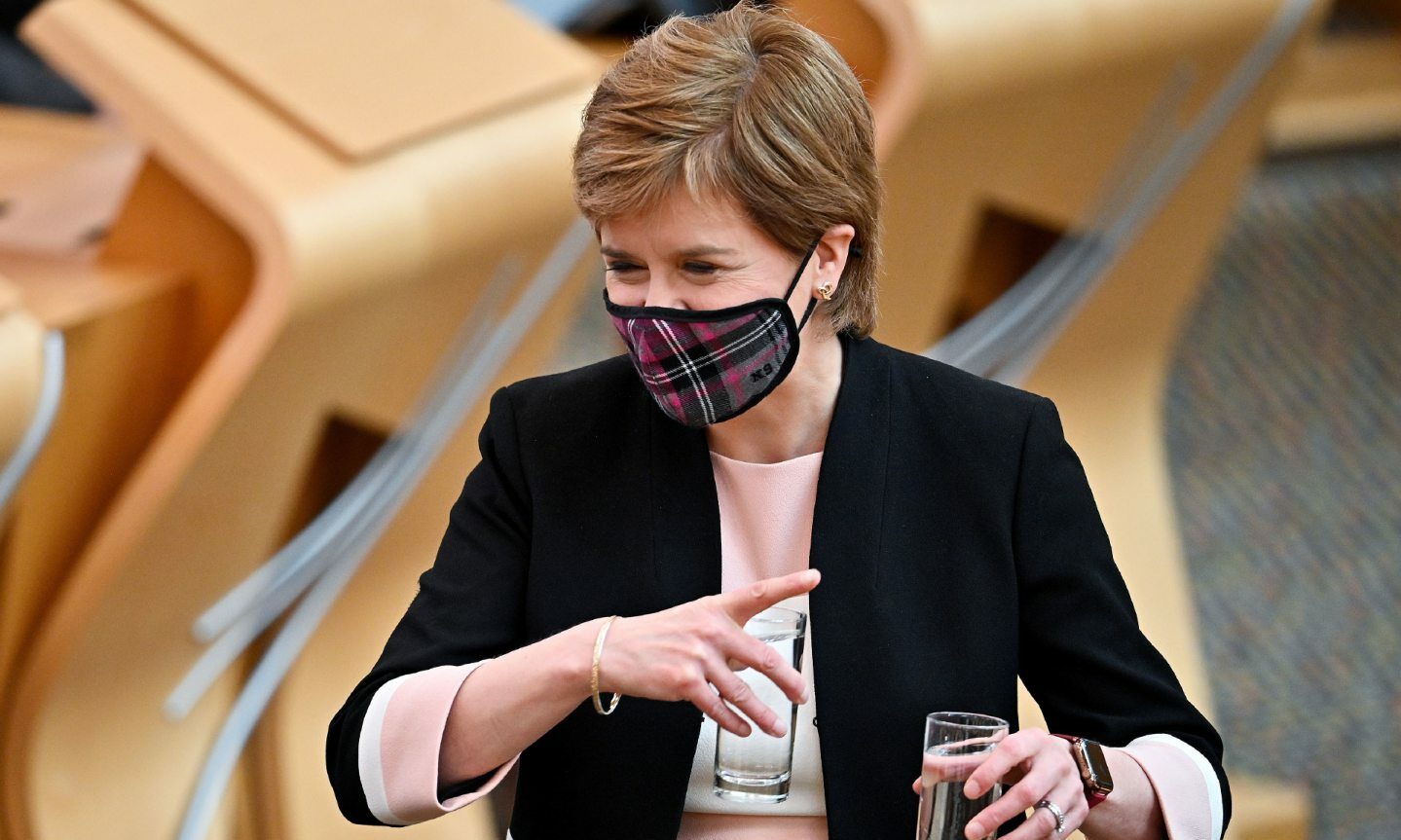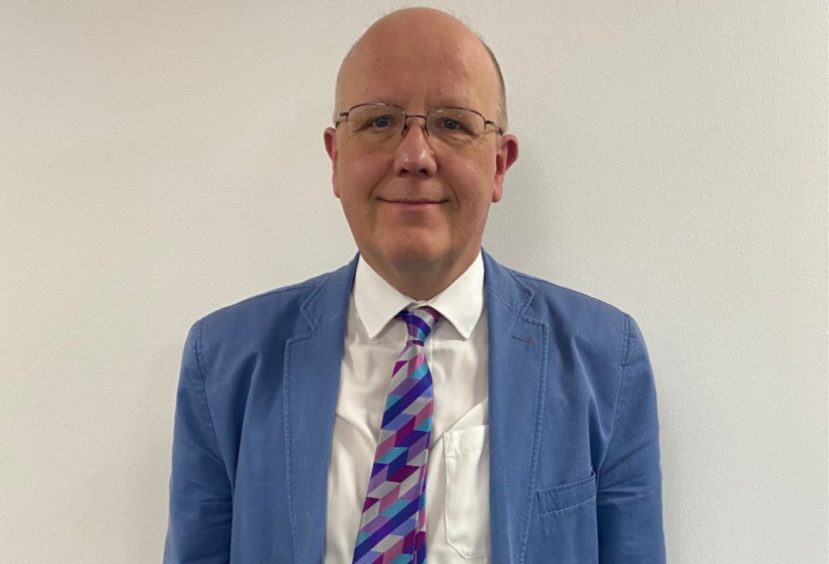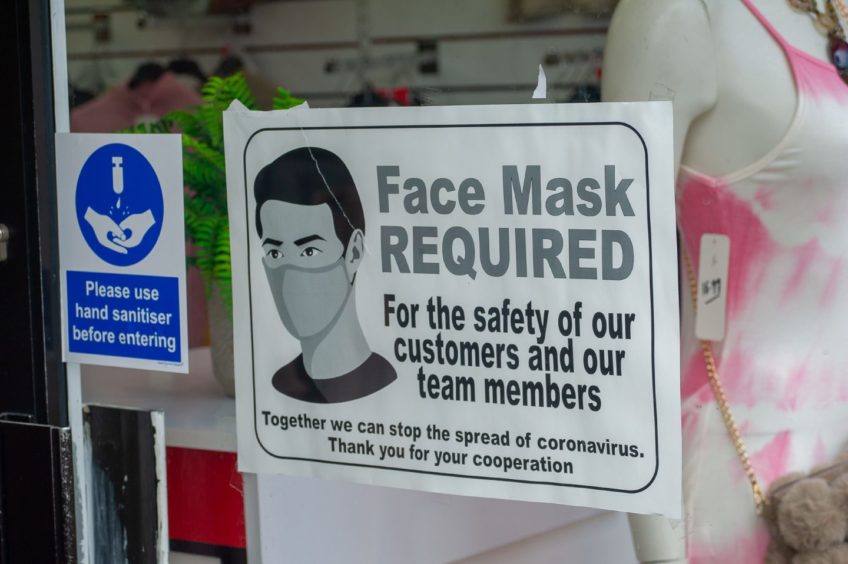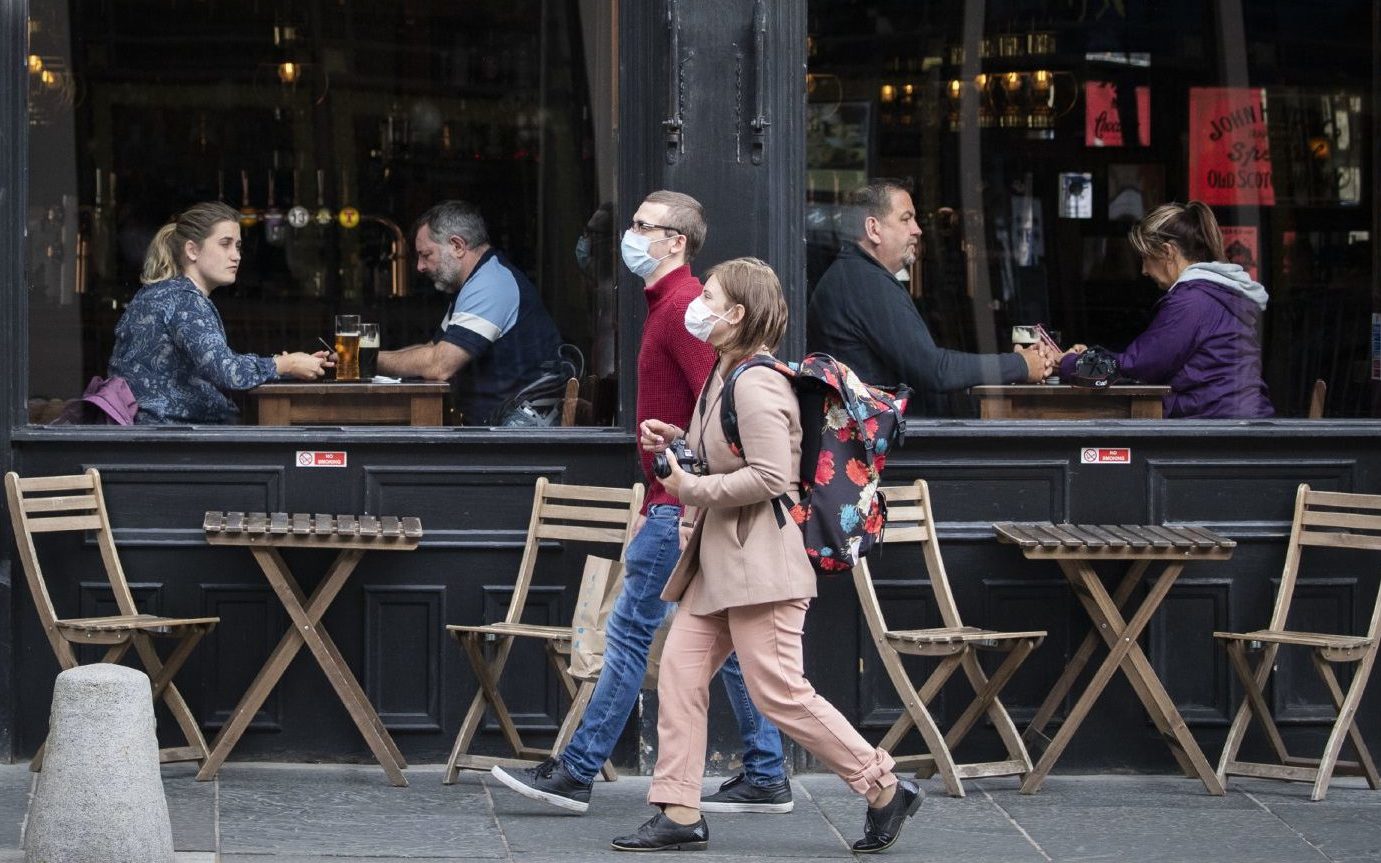Face masks – are they really effective? Yes, according to an NHS boss who states they are a “kindness to others”.
The benefits of wearing face coverings have been long questioned throughout the Covid-19 pandemic.
Regardless of questions over mask effectiveness, First Minister Nicola Sturgeon has emphasised that a move to Level 0 on Monday does not mean an immediate end to all restrictions, and face masks will remain mandatory.
In support of face coverings, NHS Highland public health director Dr Tim Allison has stressed people should think of the bigger picture when it comes to continuing to wear them.
While we should take precautions to protect our own health, he believes we should largely be thinking about wearing a face mask to protect others from infection of Covid-19 – and subsequently this will help to drive down case numbers.
“It’s more about kindness to others, rather than protecting yourself,” he said.
“It’s not about saying: ‘I’m protected because I’ve got a face covering’.”
Despite any controversy around face masks and how much protection they offer, in our recent poll, 51% of readers said they would continue to wear a covering even if it was no longer a mandatory requirement.
Do all face masks offer protection? And are they just ‘the norm’ now?
One argument for why we shouldn’t see any issue in continuing to wear face coverings, according to NHS Highland boss Dr Allison, is that we have all become more accustomed to wearing them over the past year or so.
Dr Allison stated masks are “normalised” now, meaning many people feel less conscious of them when out and about.
Putting on a mask before leaving the house in other parts of the world – such as in East Asia – has long been regarded as the norm.
It’s generally considered impolite to sneeze or cough openly when you’re sick or during hayfever season.
And previous experience of viral outbreaks, like SARS in 2003, has also illustrated the importance of wearing a face mask to prevent spreading.
Dr Allison said: “Depending on the type of mask, it does offer some protection against Covid and other respiratory diseases.”
N95 masks, pictured below, are considered to offer the most protection against transmission.
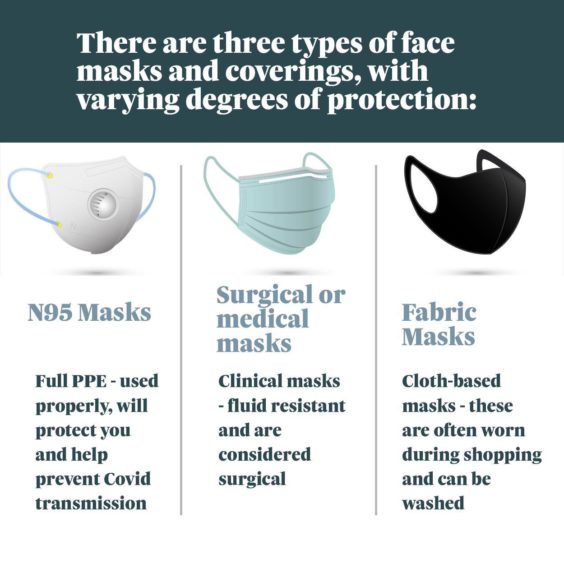
“The fluid-resistant face masks, the more surgical masks, they give some degree of protection to the wearer and also give protection to other people around,” continued Dr Allison.
“Largely, the cloth masks are just the basic face coverings. What they’re principally good for is giving me some degree of protection to other people.
“If we all have face coverings in enclosed public spaces, then we reduce the chance of the transmission of Covid.”
Dr Allison added that while masks do offer some protection, they won’t help to stop the spread like power of vaccinations.
‘It’s a good thing to do, regardless of Covid’
The health boss said having face coverings and rigorous hand hygiene has helped, not just Covid from spreading, but also to minimise case numbers of the flu and norovirus.
Keeping a one-metre distance, throwing away a tissue after coughing or sneezing – or simply not sneezing into your hands – has also helped to stop the spread.
“It’s a bit like washing your hands regularly,” he added.
“It’s a really good thing to do – regardless of whether we’ve got Covid or not.
“So, what you probably find with face coverings is that the more we wear face coverings, it will be a good thing for all respiratory infections.”
More Covid-19 news…
- ‘Time for continued caution’: Nicola Sturgeon confirms July 19 move to Level 0 will go ahead with some changes
- Covid leaves north-east man with blood clots, pneumonia and hepatitis
- ‘Are cases only rising because we’re testing more?’ and 5 other Covid questions answered
- Map shows majority of Scotland will be Covid ‘hotspot’ by July 19
- Boris Johnson follows Nicola Sturgeon’s lead on face coverings
